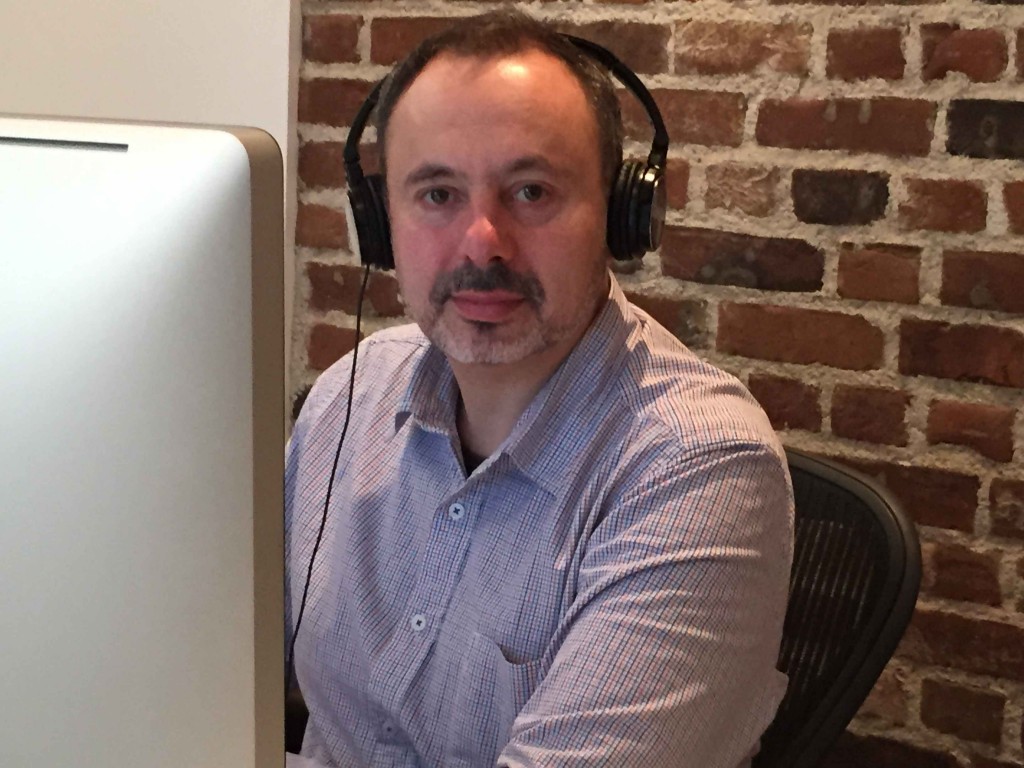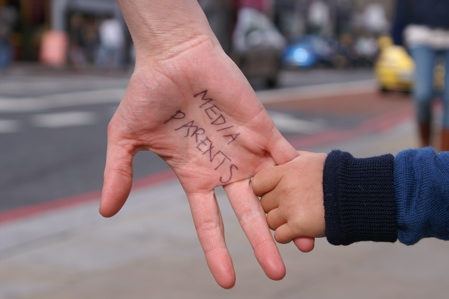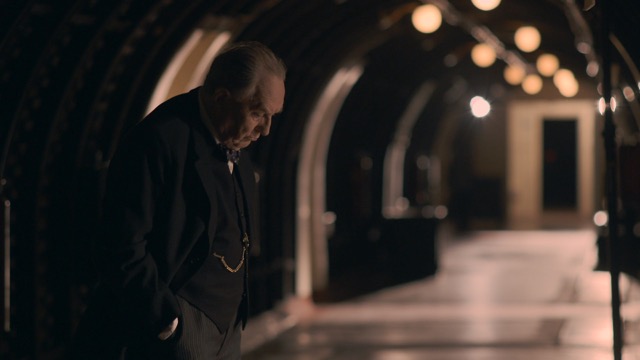5 minutes with Editor of Churchill TXing on Sunday Simon Ardizzone PD
January 23, 2015 @ 12:31 pm Posted in News CommentsSimon Ardizzone tells Media Parents how he rose to the challenge of editing ITV’s latest drama-doc - Churchill: 100 days that saved Britain – in under five and a half weeks. The film will be aired on Sunday 25th January at 10.15pm on ITV1.
For me, walking into an edit suite is always a leap into the unknown – it’s best that way. I am the fresh eye, the first audience, the midwife. Luckily, when it came to Churchill, I had stellar performances from an A-list cast (Robert Hardy, Jemma Redgrave, Phil Davis and newcomer Edwin Thomas) who had been adeptly directed by Marion Milne and sumptuously filmed by Andrew Muggleton. Plus our archive researcher, Geoff Walton, had unearthed some gorgeous WWII colour archive. Easy you would think…. Well, actually no.
It is a paradox that the better the material you edit, the more difficult it is. Bad material is often quite easy – you cut out the obvious mistakes and make the best of what’s left. But how do you make the best out of three or four nuanced options in Robert Hardy’s compelling performance? Was Churchill a depressive? A warrior? Or a fearful old man? It was all there in the performance and without a full script in place, it is down to the editor, director and execs to find their way through – in just five weeks.
I count myself hugely lucky. I have had a varied telly career with work ranging from hard-core current affairs for Unreported World and Dispatches, through to factual entertainment like Bridezilla and At Home With The Eubanks, as well as plenty of specialist-factual. Each one helps you develop a different story muscle, and when you’re trying to deliver a non-formatted doc to a demanding mainstream broadcaster like ITV1, you fall back on the lessons you’ve learned. So what are those lessons?
Think about the story ASAP.
Seriously, don’t bimble about, don’t just try to paint pretty pictures. We take it for granted that editors are good at creating sequences, but most of us are good writers too. Working alongside my director Marion, we would draft and re-draft the script as well as re-record commentary every day. You’re not just looking at structure and storytelling, the tone of the words in the commentary is really important too. Are you using short Anglo-Saxon words (think Sun headline)? Or are you using the more intellectual vocabulary, drawn from French, Latin and Greek? How does the language sound when spoken? Do you start too many sentences with “but” or “however”? Are your sentences so long that you forget the subject by the time you get to the end? Do the words feel concrete, compelling and accessible, or a bit vague and abstract? And finally, do you commit that big sin, of just saying what you are about to see and hear?
Create moments.
Your audience will come away with two or three scenes in their heads. Critics will write about them, viewers will discuss them. Make sure you know what those scenes are. Set up the dramatic tension, let the scene breathe so that they audience understands and feels the dilemma emotionally – and then, give a good pay off/resolution.
Use music library executives.
We had no budget for a composer so one of the first things I did was pick up the phone to Universal and EMI and commission music searches. I always try to be specific about the emotions and atmospheres a film needs. If you ask for music ‘for a war film’ you are likely to get something that sounds straightforwardly military. Instead ask for composers that you like, (we ended up with a lot of tracks by Daniel Pemberton), and complex emotions like ‘fearful but determined’. This is particularly important when you have nuanced performances, otherwise you kill your film’s greatest asset. I always try to specify a range of instrumentation like ‘orchestral but with some non-classical instruments’. Be patient if you aren’t getting the right tracks. In the end, we commissioned about ten searches from each library and music was the biggest challenge of the film, but we managed to achieve a big, classy, modern orchestral feel that gave the film drive and emotional power.
Be clear what the demands of your slot are.
Working on shows like Channel 5’s Autopsy teaches you to follow the rules of your genre. So don’t think you know best and ditch the conventions; they are there for a reason and you will soon get in to trouble if you ignore them. You might think that films like Churchill: 100 Days that Changed Britain have different, more ‘creative’ rules than other factual shows, but it’s not true. Genre is all about the audience’s expectations and setting up a clear story is even more important with more authored one-off films that don’t have a clear story format. Getting to the kind of clarity that will pull in a mainstream audience is hard whichever films you are making.
If it feels boring you probably don’t have the most vivid facts.
It is not called factual programming for nothing, and it is amazing how you can ramp up drama with a few well-chosen figures or factoids. The Battle of Britain is much more exciting when you give the actual number of downed Allied planes versus the number of German planes.
Use your execs.
They want your work to be better. We were lucky to have Ollie Tait as our exec at Shiver and Jo Clinton-Davis as our commissioning editor, both were very demanding and very supportive. We all have horror stories of interference from our higher-ups, but when you are really pushed for time, they are a valuable resource – men and women who have seen a lot of programming and know what works.
And finally,
you have to give yourself time and space to enjoy your material.
It can be hard to sit down and try to see the film afresh after a hard day’s work, but that’s what your audience is going to do. I feel very privileged to have worked on Churchill: 100 Days that Changed Britain. I hope you enjoy the film too.

http://www.mediaparents.co.uk/freelancers/7258/simon-ardizzone Simon is an award-winning shooting PD and editor.

Please join www.mediaparents.co.uk for great jobs, networking and events. The Media Parents Back to Work scheme is currently accepting more applicants, please email events@mediaparents.co.uk for details. www.mediaparents.co.uk Our next event will be at the end of Feb, watch this space for details.

